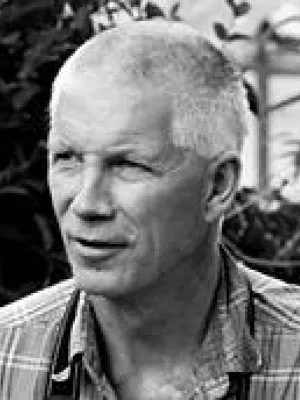
Jonas Ardö
Professor

Household resilience to climate change hazards in Uganda
Author
Other contributions
- Giuliano Dibaldassarre
- Yazidhi Bamutaze
- Paul Isolo Mukwaya
Summary, in English
Purpose – As climate change shocks and stresses increasingly affect urban areas in developing
countries, resilience is imperative for the purposes of preparation, recovery and adaptation. This study aims to investigate demographic characteristics and social networks that influence the household capacity to prepare, recover and adapt when faced with prolonged droughts or erratic rainfall events in Mbale municipality in Eastern Uganda.
Design/methodology/approach – A cross-sectional research design was used to elicit subjective opinions. Previous studies indicate the importance of subjective approaches for measuring social resilience but their use has not been well explored in the context of quantifying urban resilience to climate change shocks and stresses. This study uses 389 structured household interviews to capture
demographic characteristics, social networks and resilience capacities. Descriptive and inferential statistics were used for analysis.
Findings – The ability of low-income households to meet their daily expenditure needs, household size, and networks with relatives and non government organizations (NGOs) were significant determinants of preparedness, recovery and adaptation to prolonged droughts or erratic rainfall events.
Practical implications – The results imply that policymakers and practitioners have an important role vis-à-vis encouraging activities that boost the ability of households to meet their daily expenditure needs, promoting small household size and reinforcing social networks that enhance household resilience.Originality/value – Even the low-income households are substantially more likely to prepare for and recover from prolonged droughts or erratic rainfall events if they can meet their daily expenditure needs. This
finding is noteworthy because the poorest in society are generally the most vulnerable to hazards.
Keywords Resilience, Drought, Urban, Networks, Rainfall, Demographic
countries, resilience is imperative for the purposes of preparation, recovery and adaptation. This study aims to investigate demographic characteristics and social networks that influence the household capacity to prepare, recover and adapt when faced with prolonged droughts or erratic rainfall events in Mbale municipality in Eastern Uganda.
Design/methodology/approach – A cross-sectional research design was used to elicit subjective opinions. Previous studies indicate the importance of subjective approaches for measuring social resilience but their use has not been well explored in the context of quantifying urban resilience to climate change shocks and stresses. This study uses 389 structured household interviews to capture
demographic characteristics, social networks and resilience capacities. Descriptive and inferential statistics were used for analysis.
Findings – The ability of low-income households to meet their daily expenditure needs, household size, and networks with relatives and non government organizations (NGOs) were significant determinants of preparedness, recovery and adaptation to prolonged droughts or erratic rainfall events.
Practical implications – The results imply that policymakers and practitioners have an important role vis-à-vis encouraging activities that boost the ability of households to meet their daily expenditure needs, promoting small household size and reinforcing social networks that enhance household resilience.Originality/value – Even the low-income households are substantially more likely to prepare for and recover from prolonged droughts or erratic rainfall events if they can meet their daily expenditure needs. This
finding is noteworthy because the poorest in society are generally the most vulnerable to hazards.
Keywords Resilience, Drought, Urban, Networks, Rainfall, Demographic
Department/s
- Dept of Physical Geography and Ecosystem Science
- MECW: The Middle East in the Contemporary World
- Centre for Geographical Information Systems (GIS Centre)
Publishing year
2020
Language
English
Pages
59-73
Publication/Series
International Journal of Climate Change Strategies and Management
Volume
12
Issue
1
Full text
Document type
Journal article
Publisher
Emerald Group Publishing Limited
Topic
- Physical Geography
- Human Geography
Keywords
- Resilience, Drought, Urban, Networks, Rainfall, Demographic
Status
Published
ISBN/ISSN/Other
- ISSN: 1756-8692

